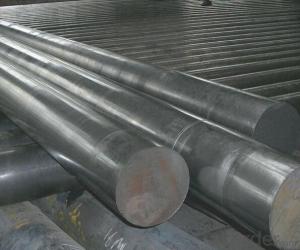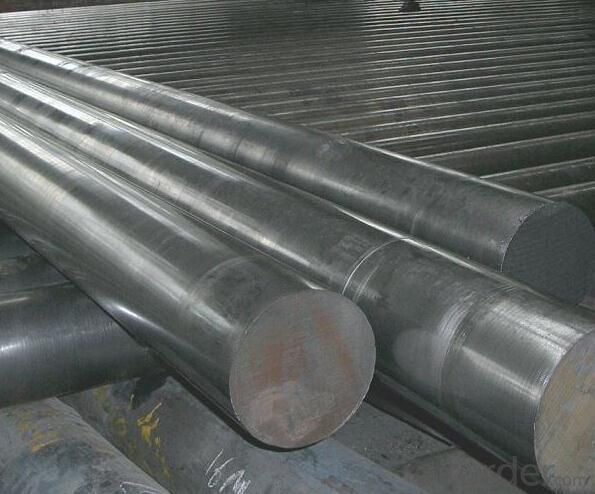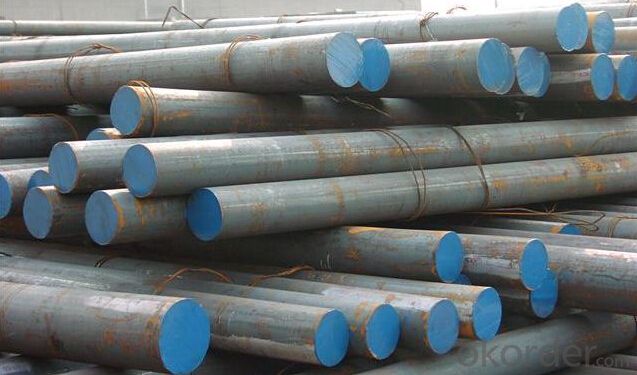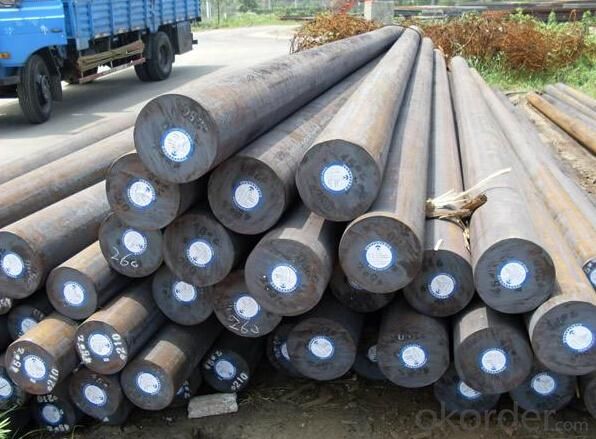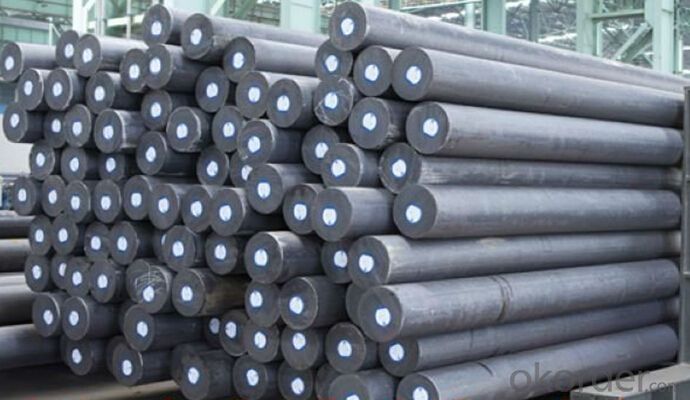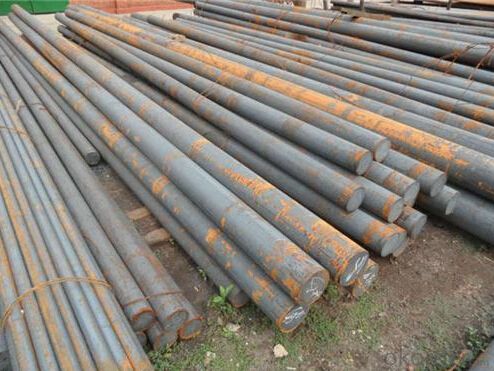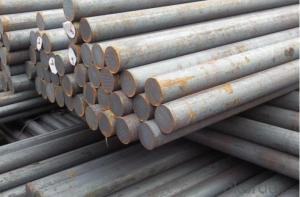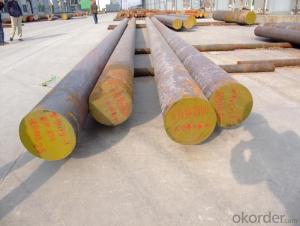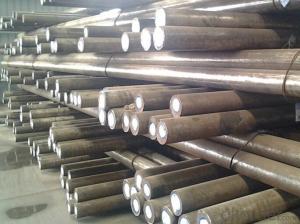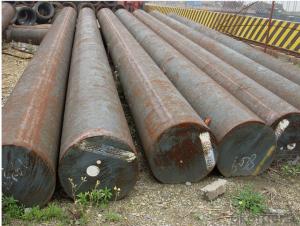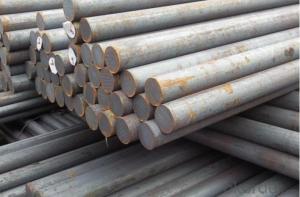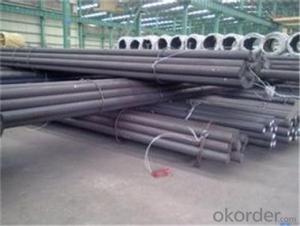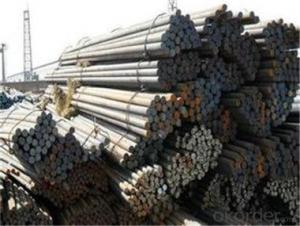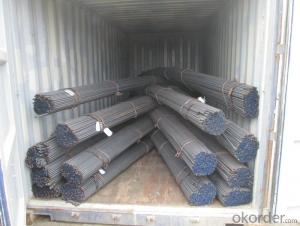Grade S235JR CNBM Carbon Steel Round Bar with High Quality
- Loading Port:
- Shanghai
- Payment Terms:
- TT OR LC
- Min Order Qty:
- 3 m.t.
- Supply Capability:
- 10000 m.t./month
OKorder Service Pledge
OKorder Financial Service
You Might Also Like
Specification
Product Description
S235jr Steel Round Bars/round ba
Grade:SS400, A36, Q235
Size:8mm-35mm
Technique: hot rolled
Certification: CE,SGS,ISO
Chemical Composition
C | Si | Mn | P | S | S |
0.14~0.22% | ≤0.30 | 0.30~0.65 | ≤0.045 | ≤0.050 | ≤0.050 |
Application:
Mold bottom,
Plastic mold
Construction machinery parts
Automobile parts
Security grills
Screens
Construction
Company Information:
CNBM International Corporation is the most important trading platform of CNBM group.
Whith its advantages, CNBM International are mainly concentrate on Cement, Glass, Iron and Steel, Ceramics industries and devotes herself for supplying high qulity series of refractories as well as technical consultancies and logistics solutions.
Packing & Delivery
1. Packaging: seaworthy package or as required
2. Delivery: 35-45 days or based on quantity
Products Show
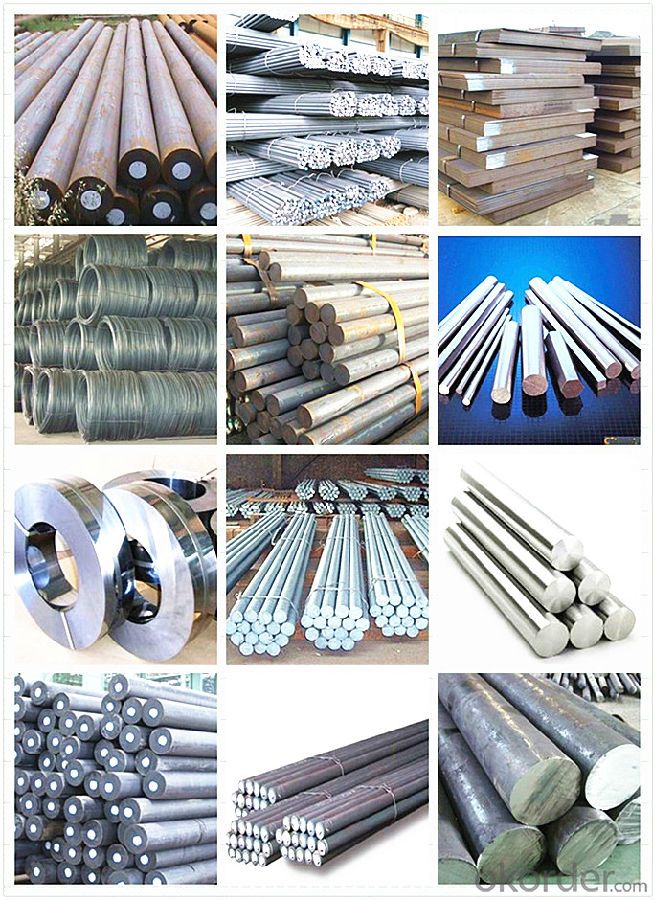
FAQ:
1.Your advantages?
Professional products inquiry, products knowledge train (for agents), smooth goods delivery, excellent
customer solution proposale
2. Test & Certificate?
SGS test is available, customer inspection before shipping is welcome, third party inspection is no problem
3. Factory or Trading Company?
CNBM is a trading company but we have so many protocol factories and CNBM works as a trading department
of these factories. Also CNBM is the holding company of many factories.
4. Payment Terms?
30% TT as deposit and 70% before delivery.
Irrevocable L/C at sight.
5. Trading Terms?
EXW, FOB, CIF, FFR, CNF
6. After-sale Service?
CNBM provides the services and support you need for every step of our cooperation. We're the business
partner you can trust.
For any problem, please kindly contact us at any your convenient time.
We'll reply you in our first priority within 24 hours.
- Q: How does the heat treatment process affect the hardness of special steel?
- The heat treatment process has a significant impact on the hardness of special steel. Heat treatment involves heating the steel to a specific temperature, holding it at that temperature for a certain period, and then cooling it at a controlled rate. This process alters the microstructure of the steel, which in turn affects its hardness. One of the most common heat treatment techniques is quenching, which involves rapid cooling of the steel. Quenching results in the formation of a hard and brittle microstructure called martensite. The rapid cooling prevents the formation of other softer microstructures, such as pearlite or ferrite, and thus increases the hardness of the steel. Another heat treatment process that affects the hardness of special steel is tempering. After quenching, the steel is often tempered to reduce its brittleness and improve its toughness. Tempering involves reheating the quenched steel to a lower temperature and then slowly cooling it. This process allows for the transformation of some of the martensite into a more ductile microstructure, such as tempered martensite or bainite. These microstructures retain some of the hardness of martensite but also provide improved toughness and resistance to fracture. In summary, the heat treatment process significantly affects the hardness of special steel. Quenching increases hardness by forming martensite, while tempering balances hardness with improved toughness. The specific heat treatment parameters, such as temperature and cooling rate, can be adjusted to achieve the desired hardness and mechanical properties for different applications of special steel.
- Q: Does special steel require special machining techniques?
- Yes, special steel often requires special machining techniques due to its unique properties and characteristics. It is typically harder, tougher, and more heat resistant compared to regular steel, making it more challenging to cut, shape, and form. Special machining techniques such as using high-speed tools, specific tool geometries, and advanced coolant systems may be necessary to achieve desired results and maintain the integrity of the special steel.
- Q: Is special steel magnetic?
- Certainly, special steel possesses the ability to exhibit magnetism. The magnetism displayed by steel relies upon its composition and the inclusion of specific elements, like iron, nickel, and cobalt. Special steels that incorporate these magnetic elements are capable of showcasing magnetic properties. Nonetheless, it is important to note that not all forms of steel possess magnetism. For instance, certain stainless steels possess elevated levels of non-magnetic elements, such as chromium, which diminish their magnetic properties. Consequently, whether a particular kind of special steel possesses magnetism or not hinges upon its composition.
- Q: How does special steel contribute to the energy storage industry?
- Special steel plays a crucial role in the energy storage industry by providing high-strength and corrosion-resistant components for the manufacturing of batteries, turbines, and other energy storage systems. It enables the production of more efficient and durable energy storage devices, improving their overall performance and lifespan. Special steel also helps in reducing energy losses during storage and transmission processes, thus contributing to the increased efficiency of the energy storage industry.
- Q: How does special steel contribute to the defense and security industry?
- Enhanced strength, durability, and resistance to extreme conditions are crucial attributes of special steel, playing a vital role in the defense and security industry. This type of steel is specifically designed to meet the industry's unique demands, ensuring military equipment and infrastructure can withstand challenging environments and threats. One significant contribution of special steel to the defense and security sector lies in its use for manufacturing armored vehicles and tanks. These vehicles require high-strength steel to protect military personnel from ballistic and explosive threats. Special steel provides the necessary toughness and resilience to withstand impacts, ensuring soldiers' safety on the battlefield. Moreover, special steel is instrumental in the production of naval vessels and submarines. The maritime environment poses significant challenges due to its corrosive nature and harsh weather conditions. By utilizing special steel, naval ships can be constructed with superior corrosion resistance, extending their lifespan and reducing maintenance costs. Additionally, special steel is vital for the production of military-grade weaponry and ammunition. The steel's high strength and durability ensure that firearms, missiles, and other weapons can withstand extreme forces and function reliably in critical situations. This reliability is of utmost importance in the defense and security industry, where weapon failure could have severe consequences. Furthermore, special steel contributes to the construction of critical defense infrastructure, including military bases, bunkers, and communication towers. Its ability to withstand extreme temperatures, high pressures, and other challenging conditions ensures the reliability and longevity of these structures, enhancing national security. In summary, special steel's unique properties, including high strength, durability, and resistance to extreme conditions, are essential in the defense and security industry. By incorporating this material into military equipment, vehicles, weaponry, and infrastructure, defense organizations can ensure the safety, reliability, and effectiveness of their operations, ultimately contributing to national security.
- Q: What are the properties of magnetic steel?
- Magnetic steel is characterized by its ability to attract and hold a magnetic field. It is typically a hard and strong material, making it suitable for various applications such as in the production of magnets, electrical transformers, and motors. Magnetic steel also has high permeability, allowing it to efficiently conduct magnetic flux. Additionally, it exhibits good resistance to corrosion, which helps maintain its magnetic properties over time.
- Q: How does special steel contribute to the manufacturing of turbine blades?
- Special steel plays a crucial role in the manufacturing of turbine blades as it offers exceptional mechanical properties, such as high strength, corrosion resistance, and heat resistance. These properties enable turbine blades to withstand extreme operating conditions, including high temperatures and pressures. Additionally, the specific composition of special steel allows for precise shaping and intricate designs, which optimize the aerodynamic efficiency of the blades. Overall, special steel enables the production of turbine blades that are durable, efficient, and capable of withstanding the demanding conditions of power generation.
- Q: How does special steel contribute to the electrical conductivity of products?
- Several methods can be employed to utilize special steel in enhancing the electrical conductivity of products. Firstly, the formulation of special steel alloys can be tailored with specific chemical compositions that enhance its electrical conductivity. For instance, the addition of elements like copper, silver, or nickel to the steel creates additional pathways for the flow of electric current, thus increasing the conductivity. Moreover, manipulating the microstructure of special steel can also contribute to improved electrical conductivity. By controlling the size and orientation of the steel's grains, the resistance to the flow of electrons can be reduced, consequently enhancing the overall conductivity of the material. Furthermore, subjecting special steel to heat treatment or other processes can further enhance its electrical conductivity. Techniques such as annealing or tempering can effectively eliminate impurities and enhance the crystal structure of the steel, resulting in improved conductivity. In addition to these methods, special steel can also be designed with low magnetic permeability, reducing its resistance to the flow of magnetic fields. This characteristic proves advantageous in applications where minimizing electromagnetic interference is crucial, such as in electrical connectors or transformers. To summarize, special steel contributes to the electrical conductivity of products through various means, including its chemical composition, microstructural control, heat treatment, and low magnetic permeability. By optimizing these factors, special steel can significantly enhance the performance of electrical components and systems.
- Q: What are the different cutting grades of special steel?
- There are several cutting grades of special steel, including high-speed steel (HSS), tool steel, stainless steel, and alloy steel. Each grade has specific properties and characteristics that make it suitable for different cutting applications.
- Q: What are the different methods of improving the toughness of special steel?
- There are several methods of improving the toughness of special steel. One common method is through heat treatment, such as quenching and tempering, which involves rapidly cooling the steel to increase its hardness and then reheating it to improve its toughness. Another method is alloying, where elements like nickel, chromium, and molybdenum are added to the steel to enhance its toughness. Additionally, refining the steel's microstructure through processes like grain-size control and precipitation hardening can also improve its toughness.
Send your message to us
Grade S235JR CNBM Carbon Steel Round Bar with High Quality
- Loading Port:
- Shanghai
- Payment Terms:
- TT OR LC
- Min Order Qty:
- 3 m.t.
- Supply Capability:
- 10000 m.t./month
OKorder Service Pledge
OKorder Financial Service
Similar products
Hot products
Hot Searches
Related keywords
